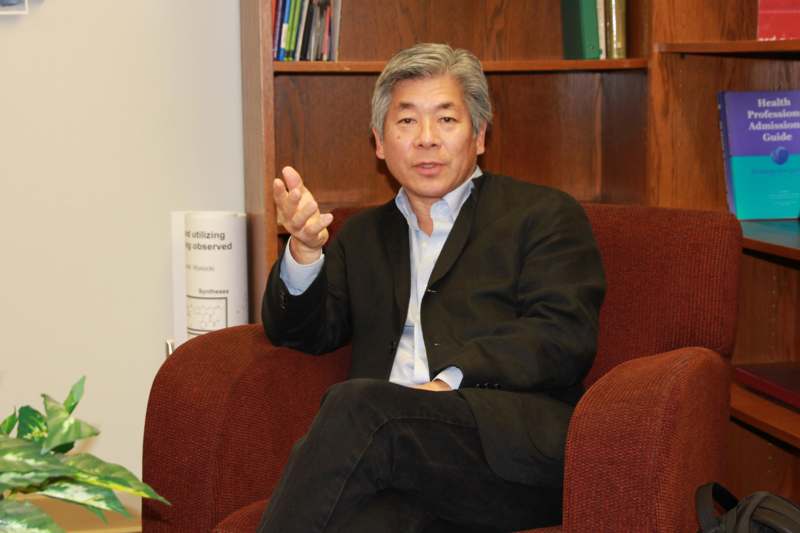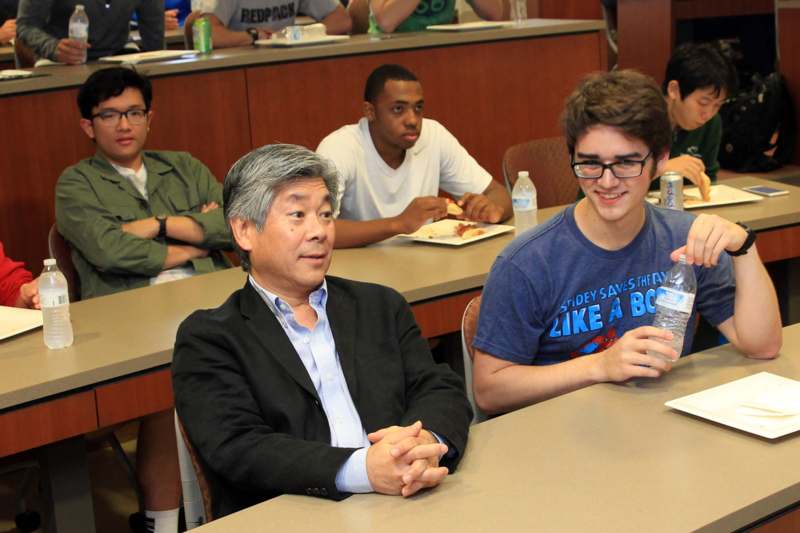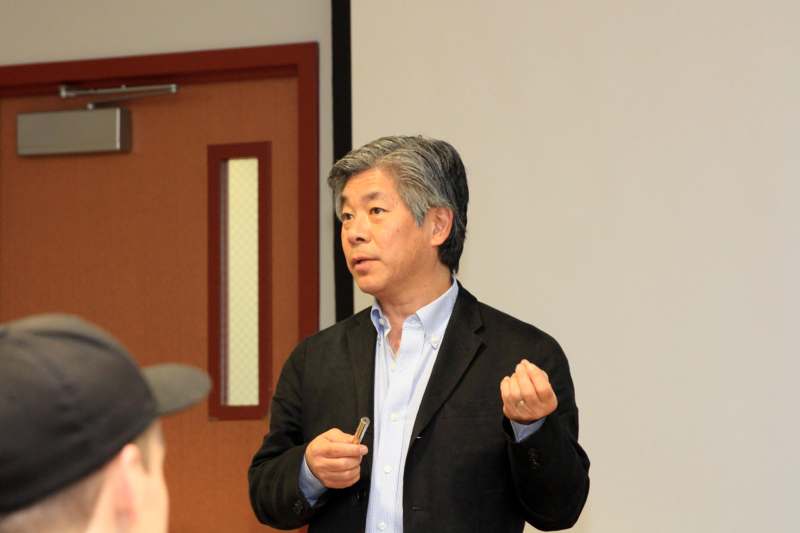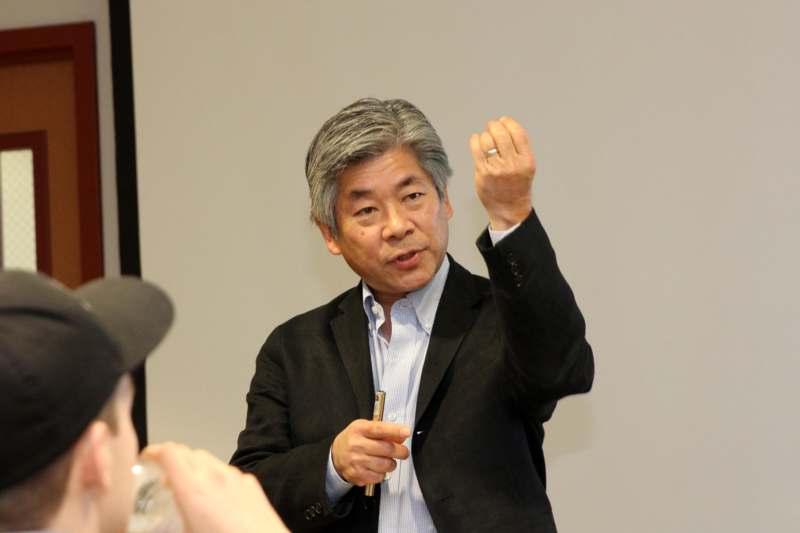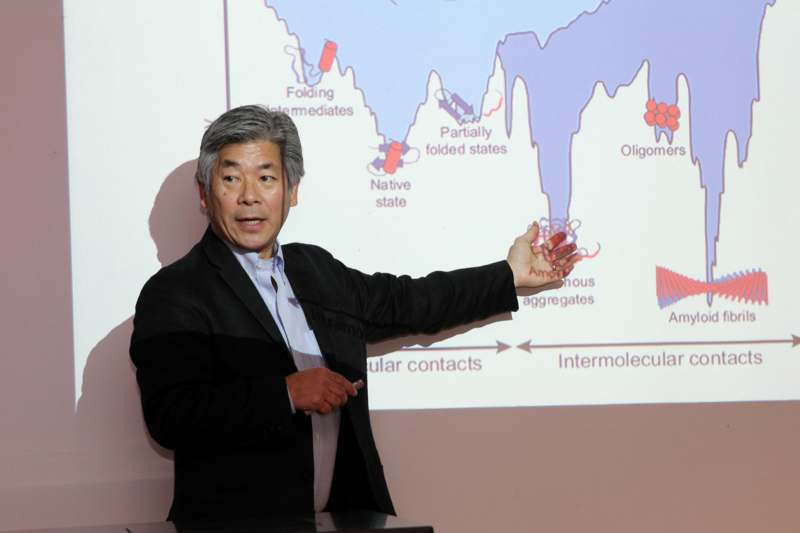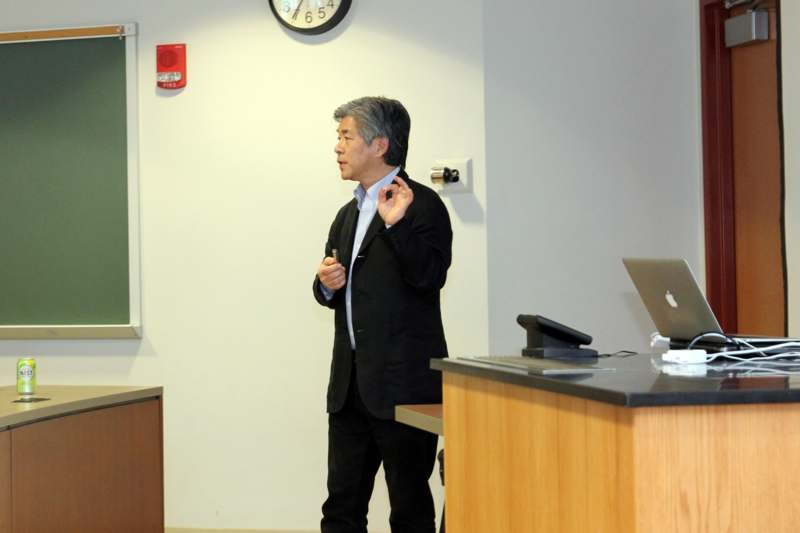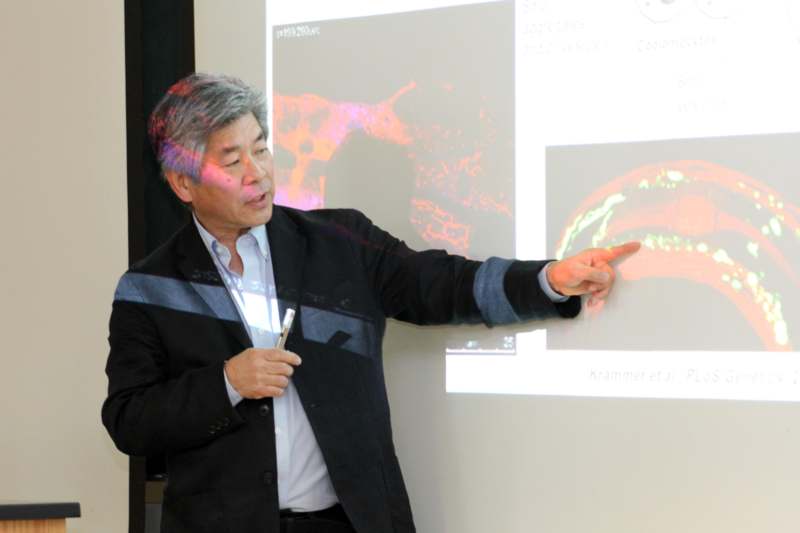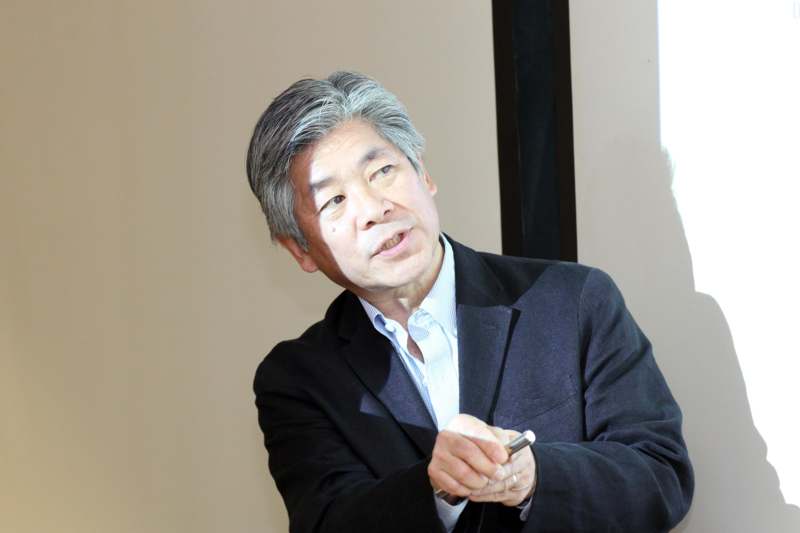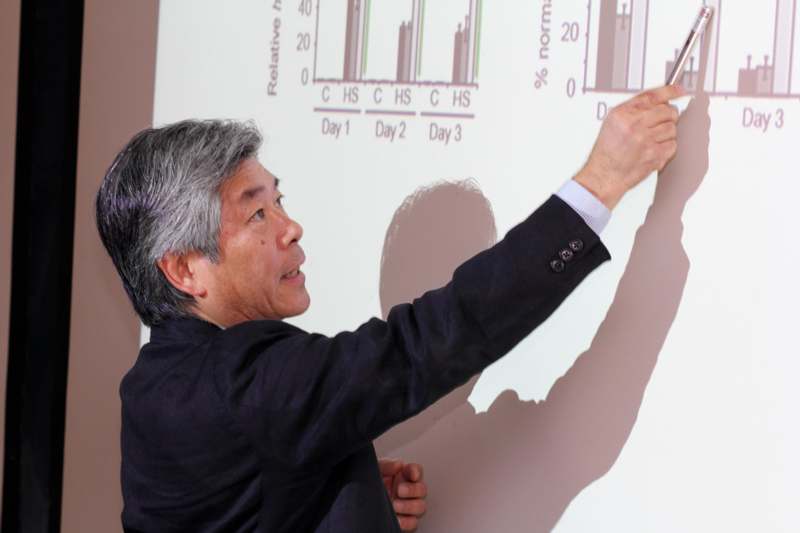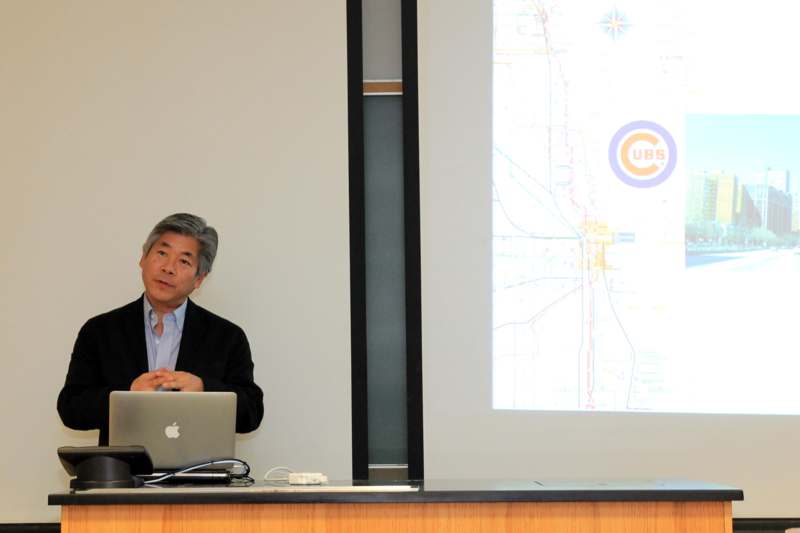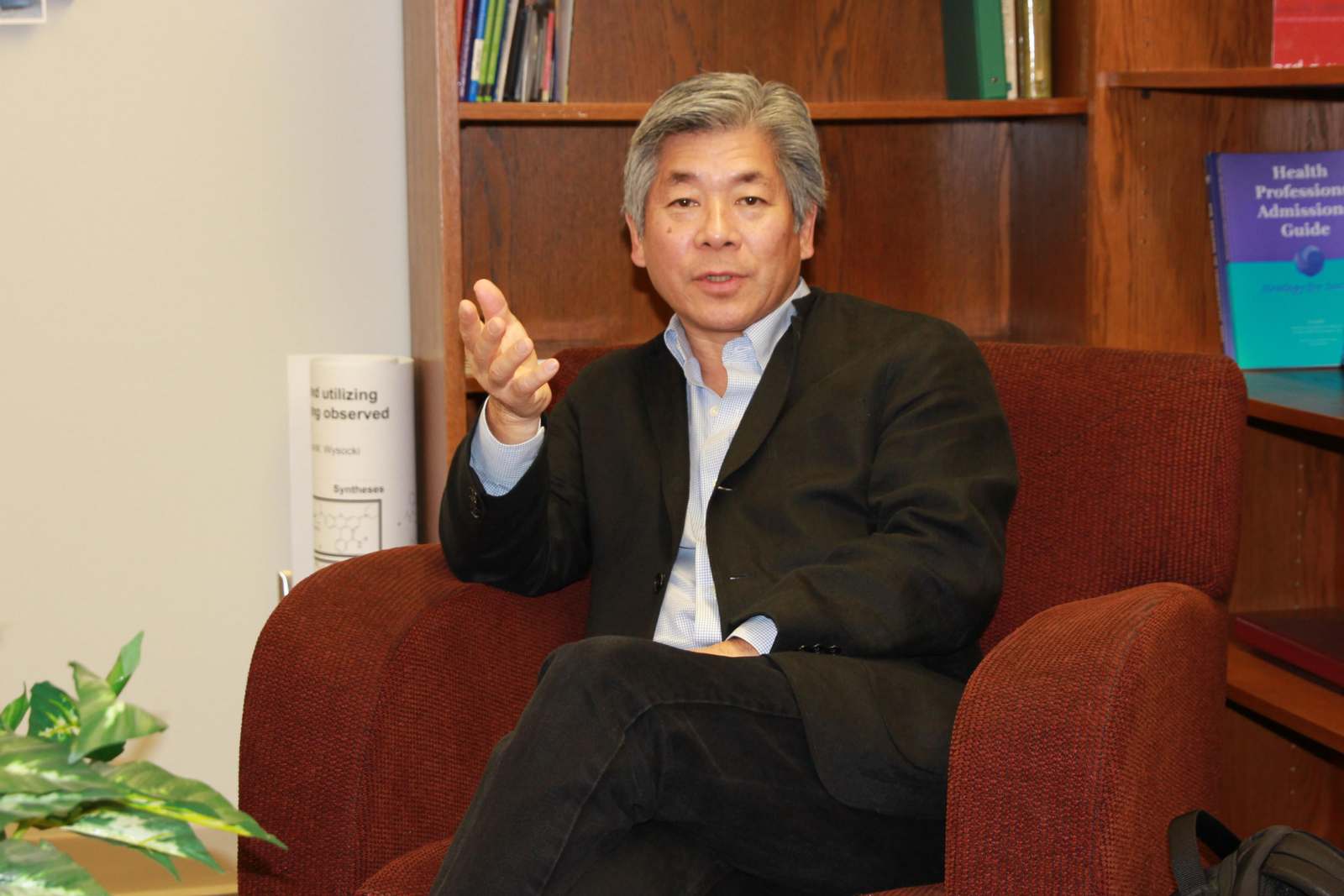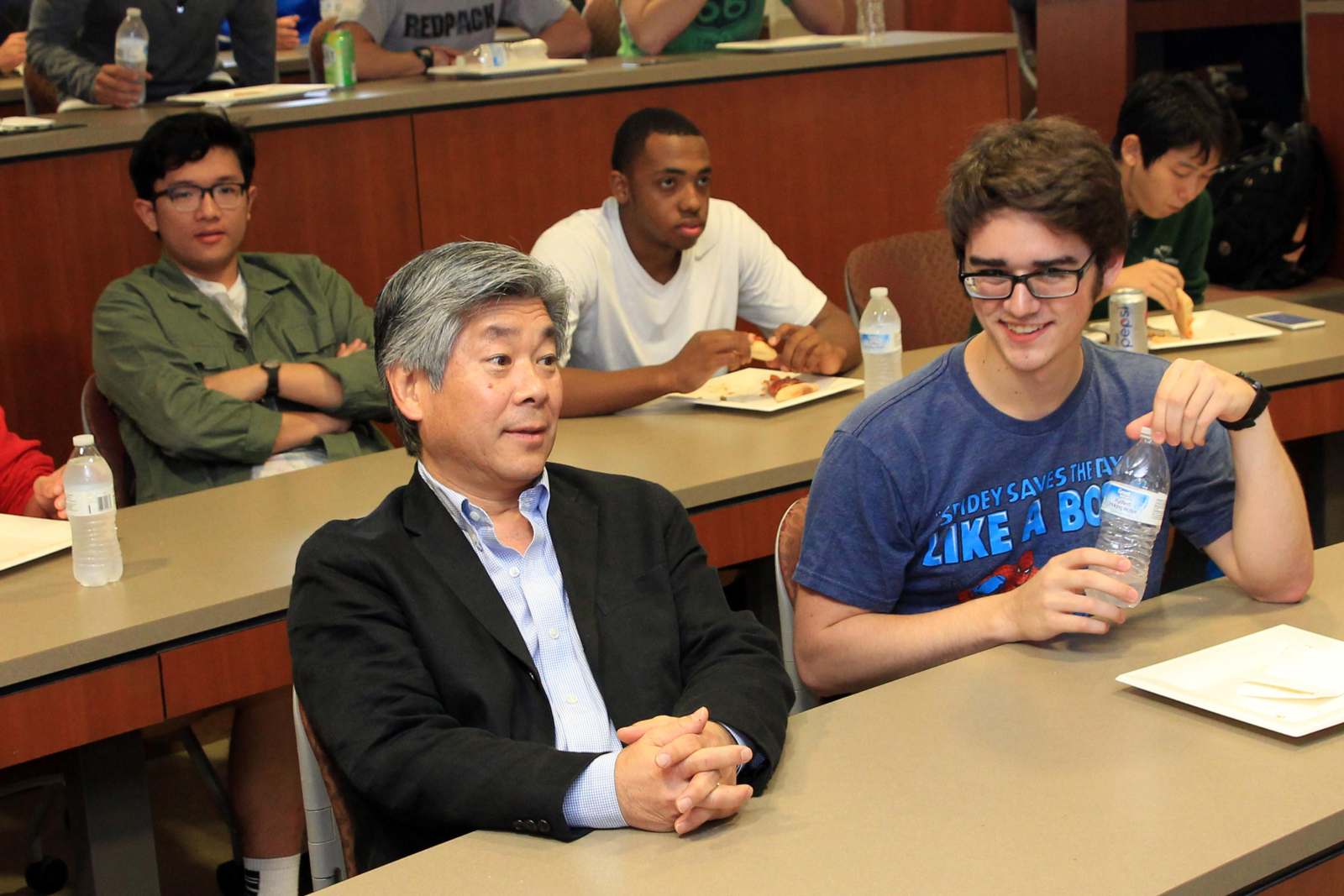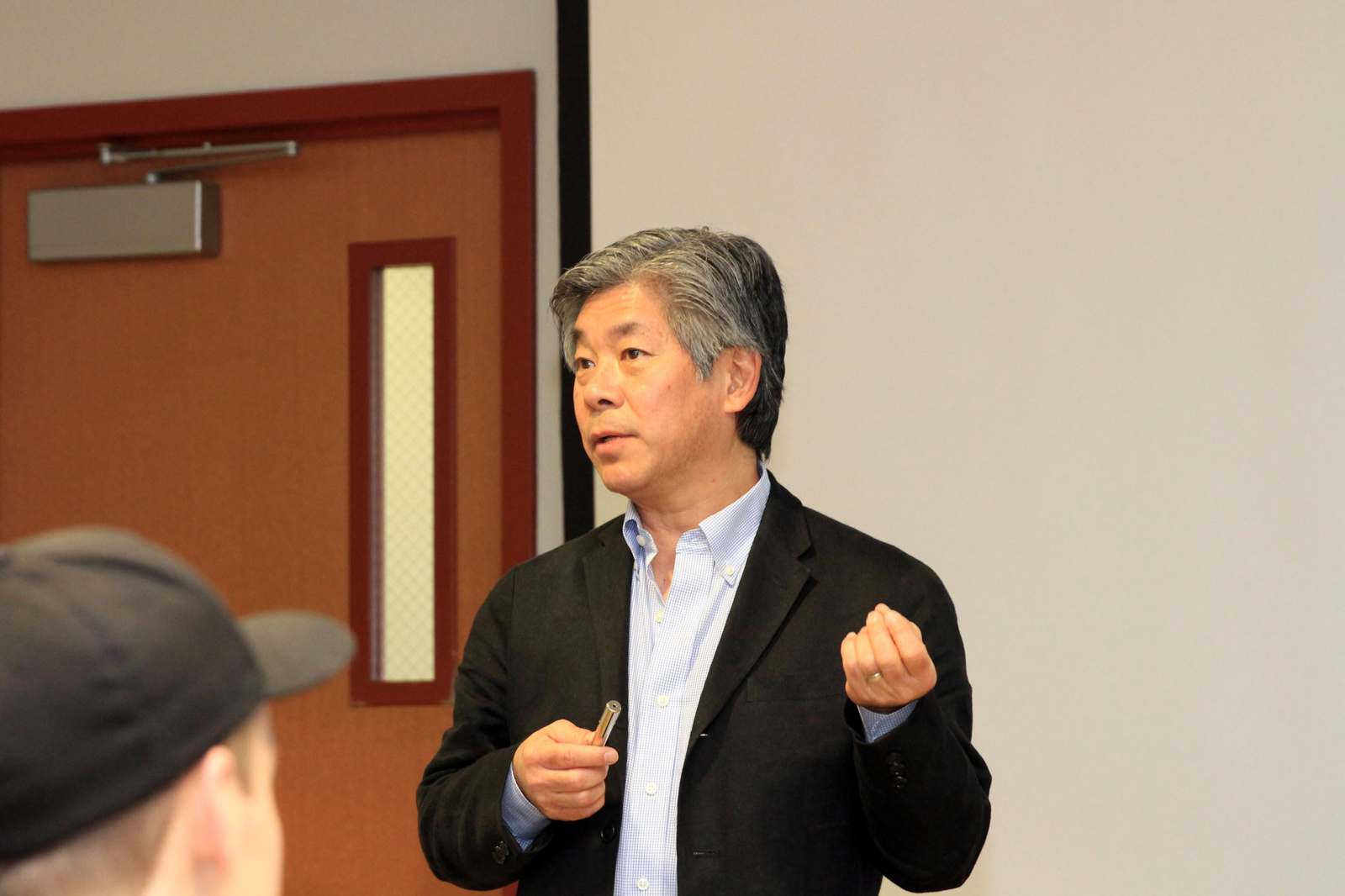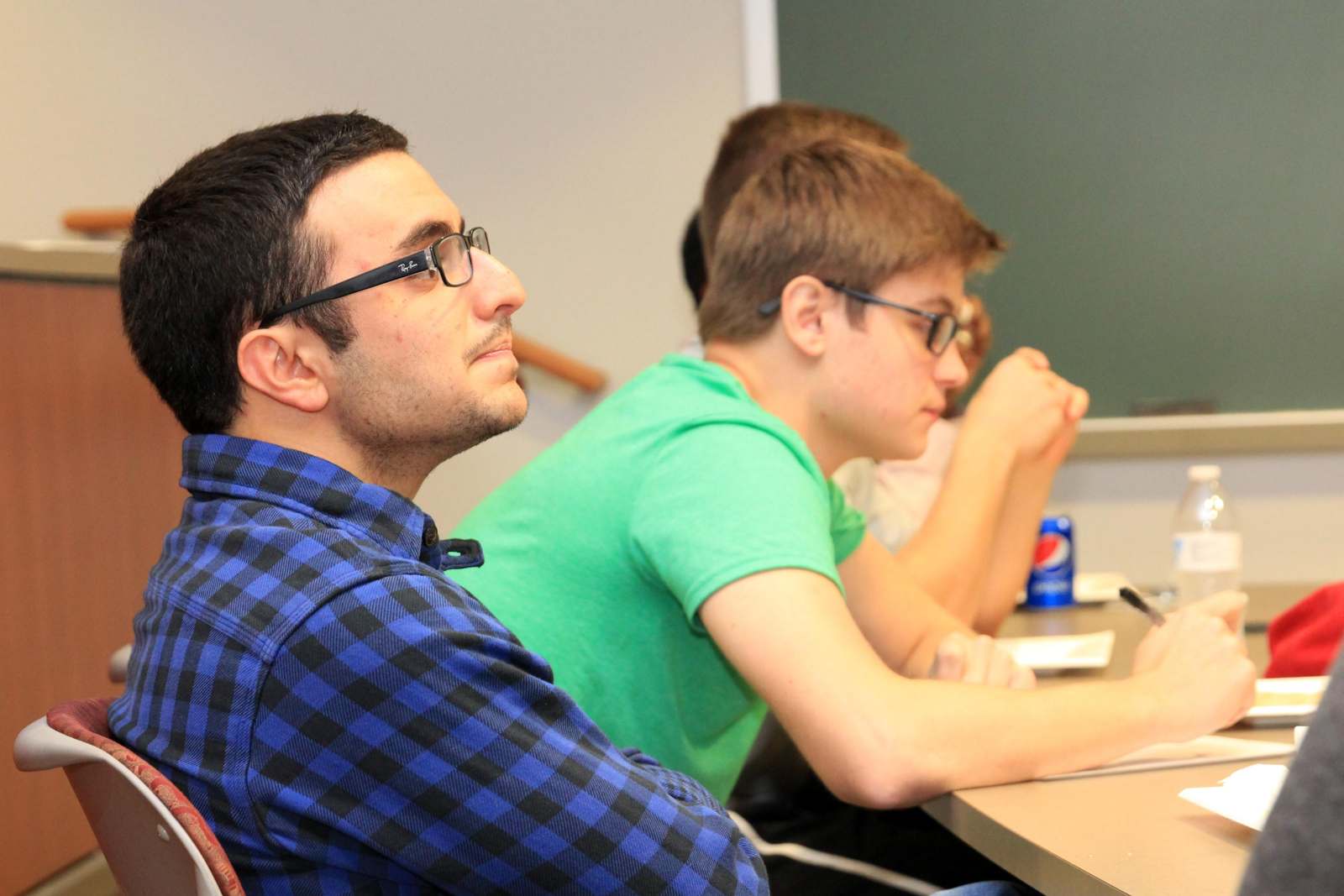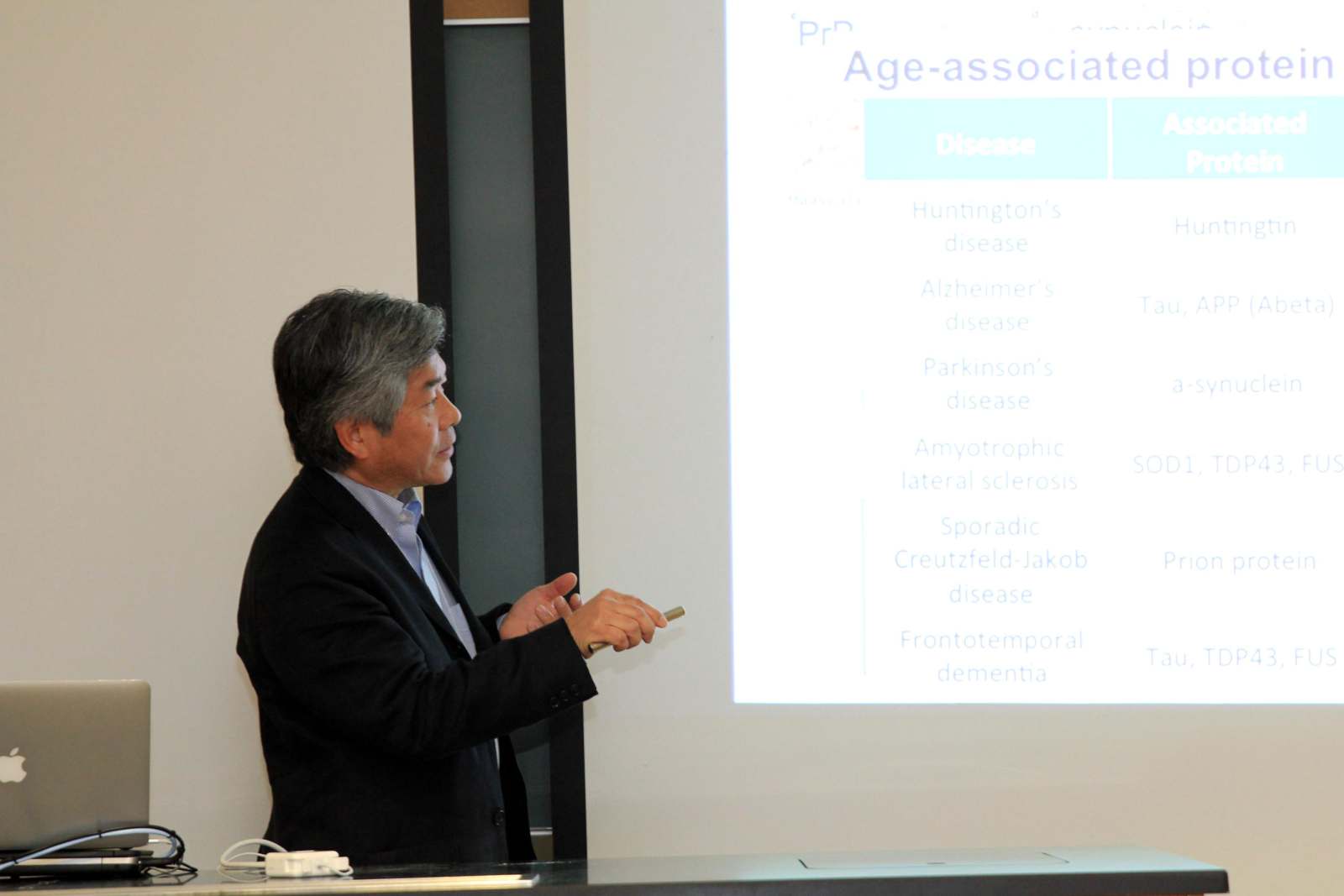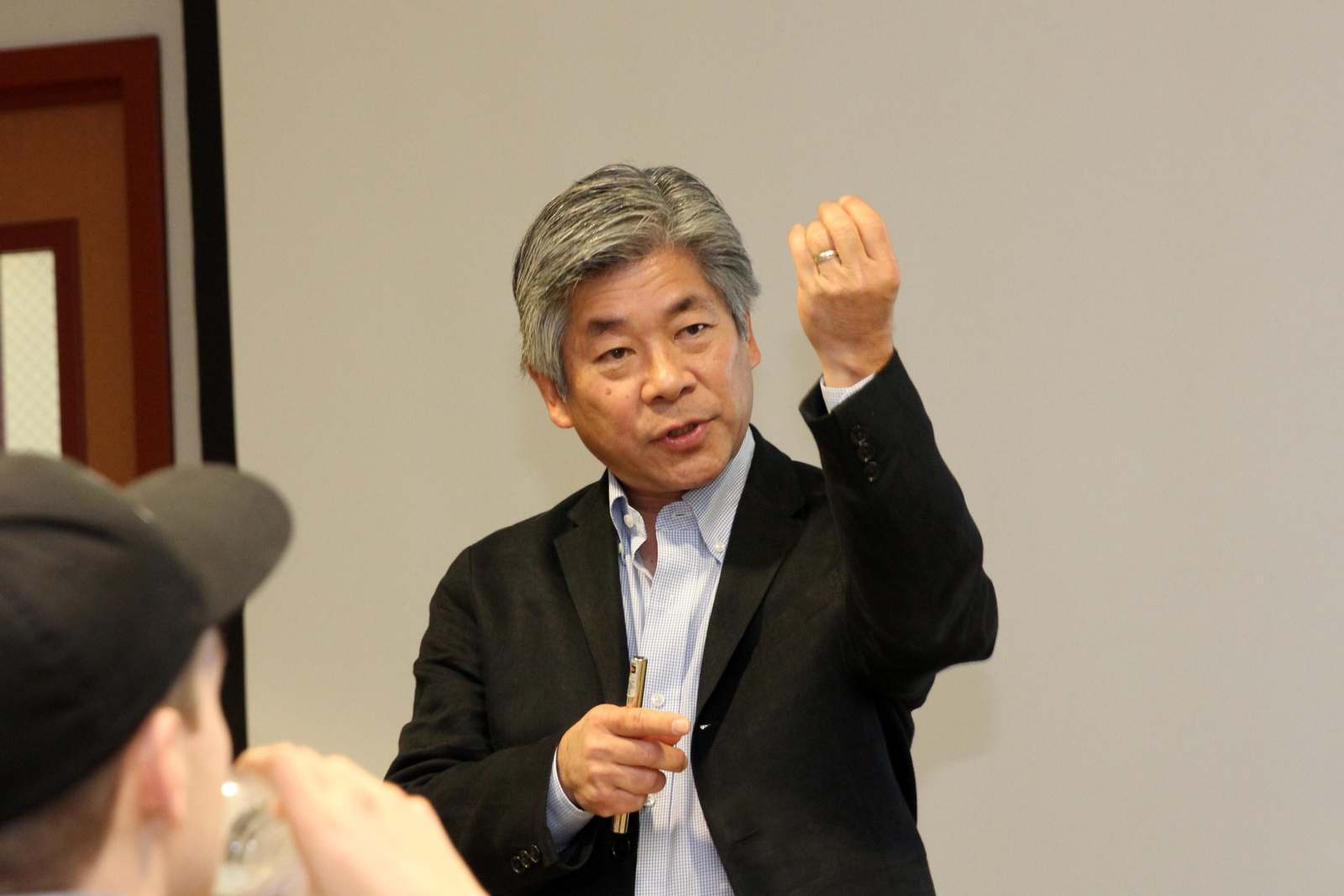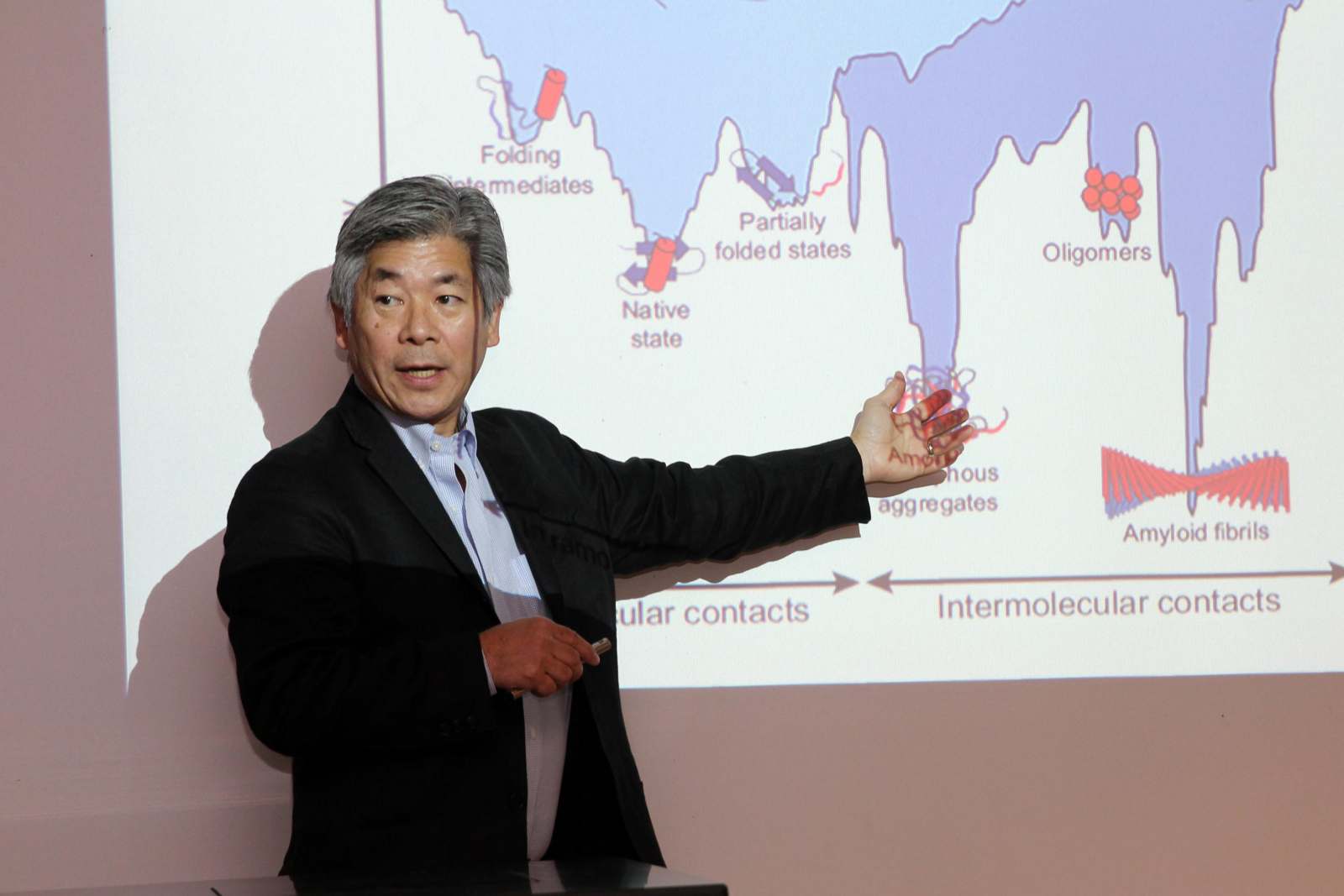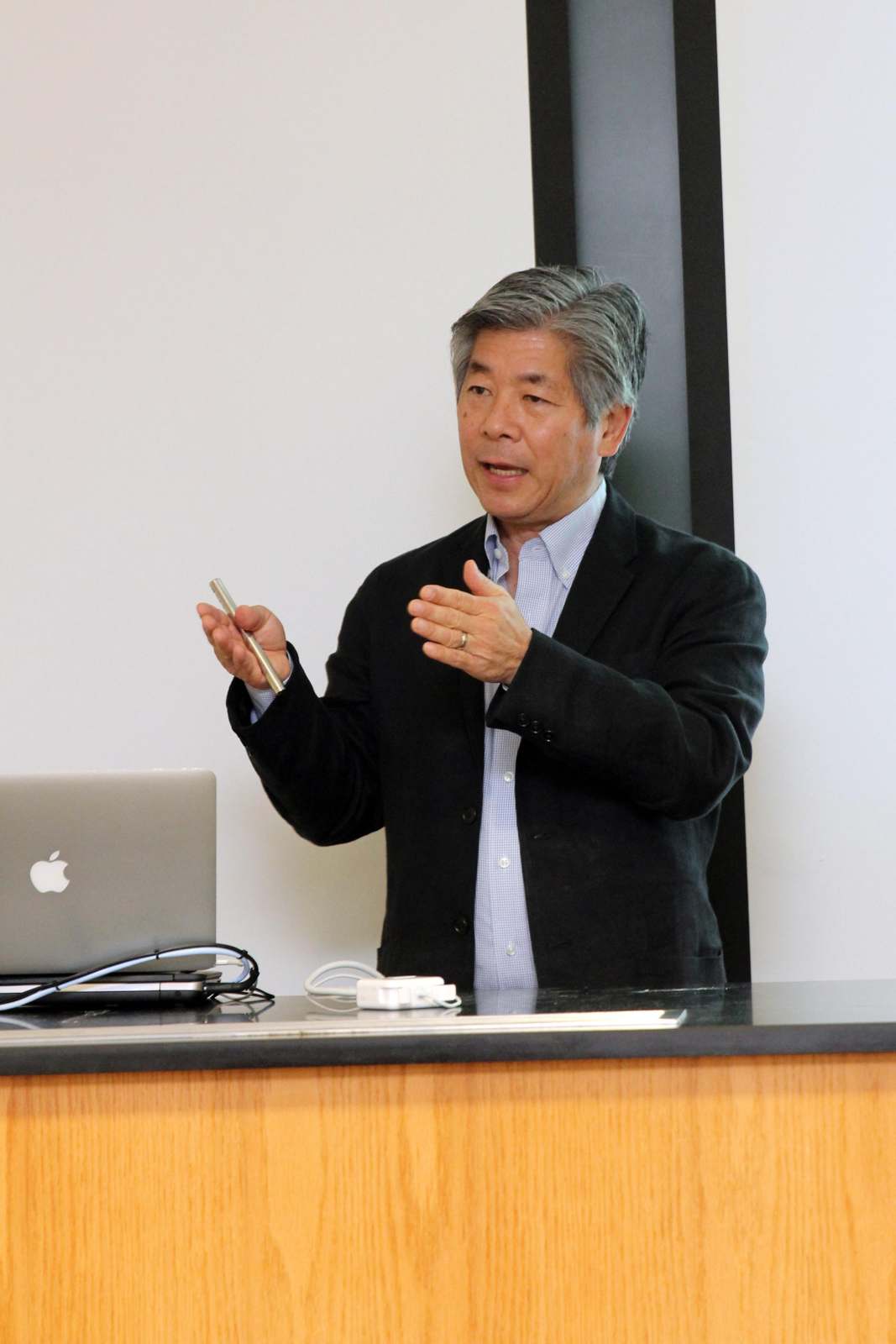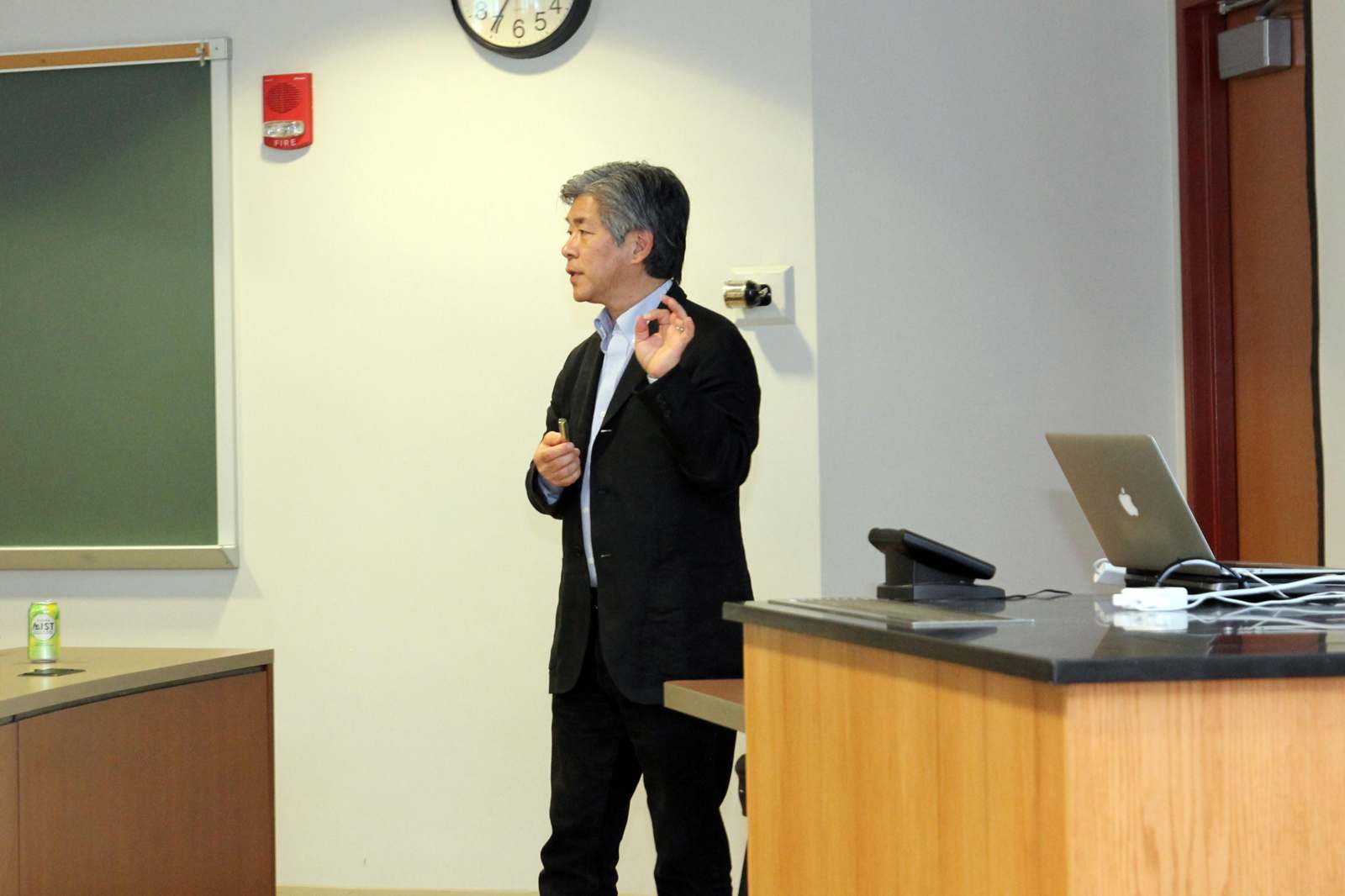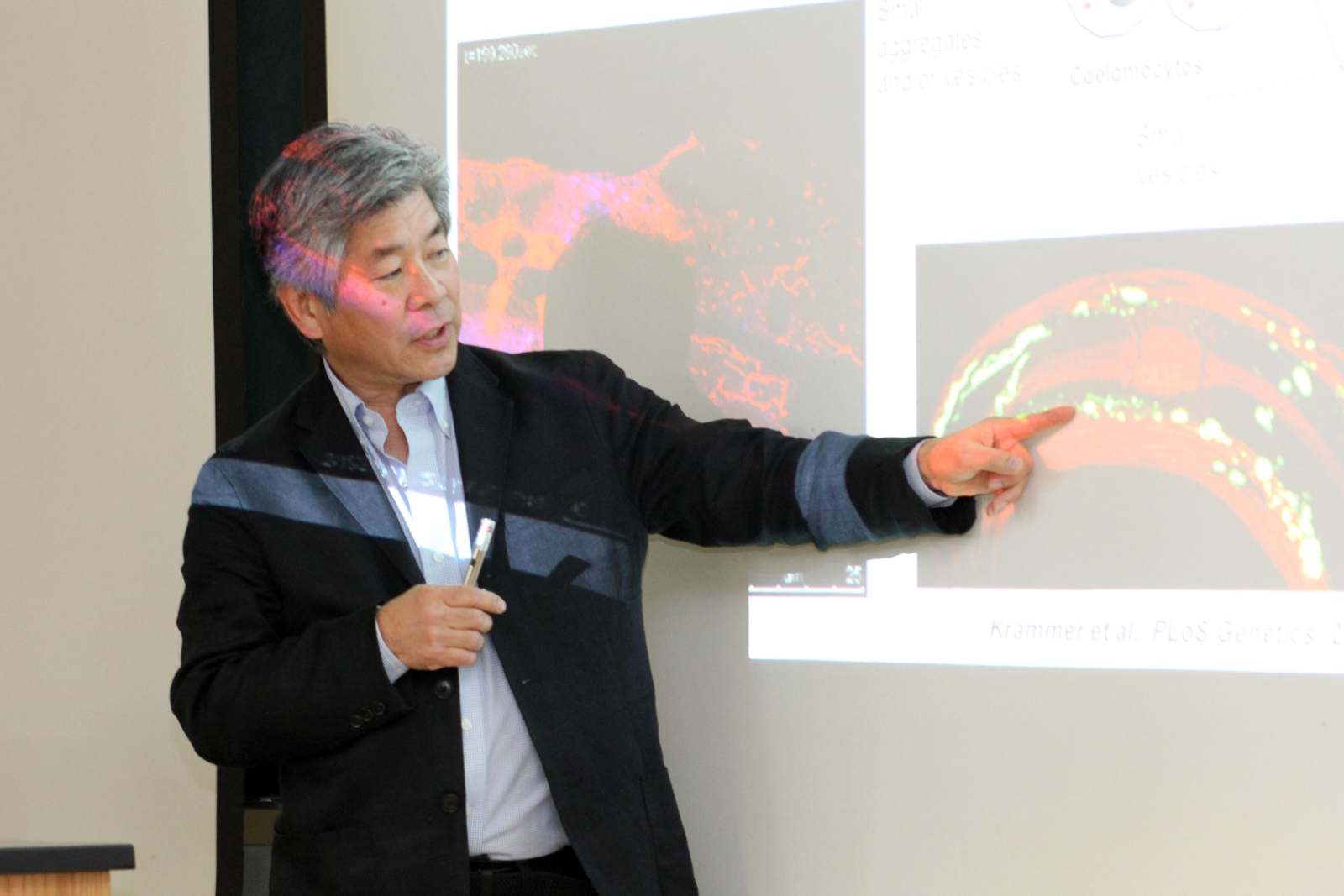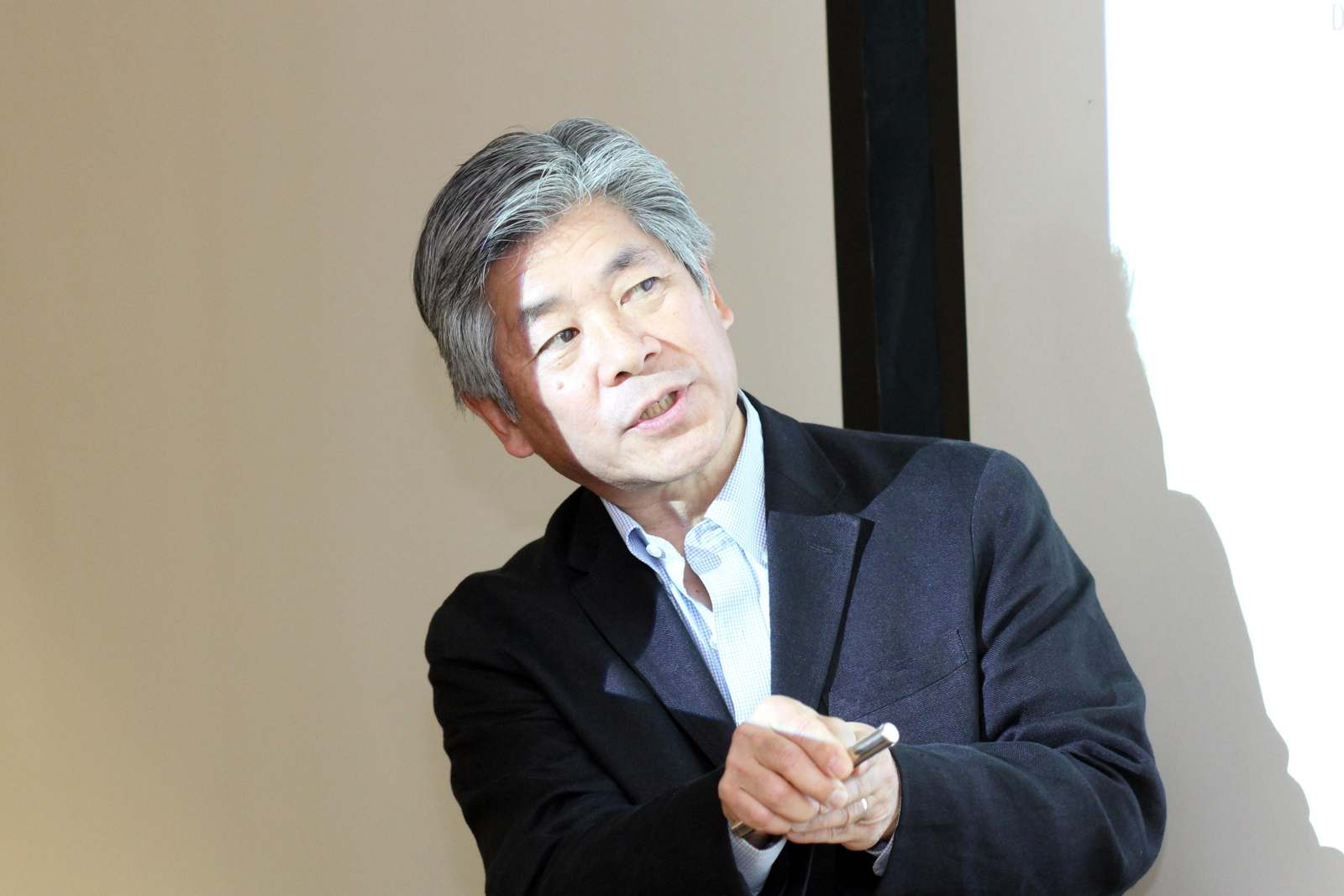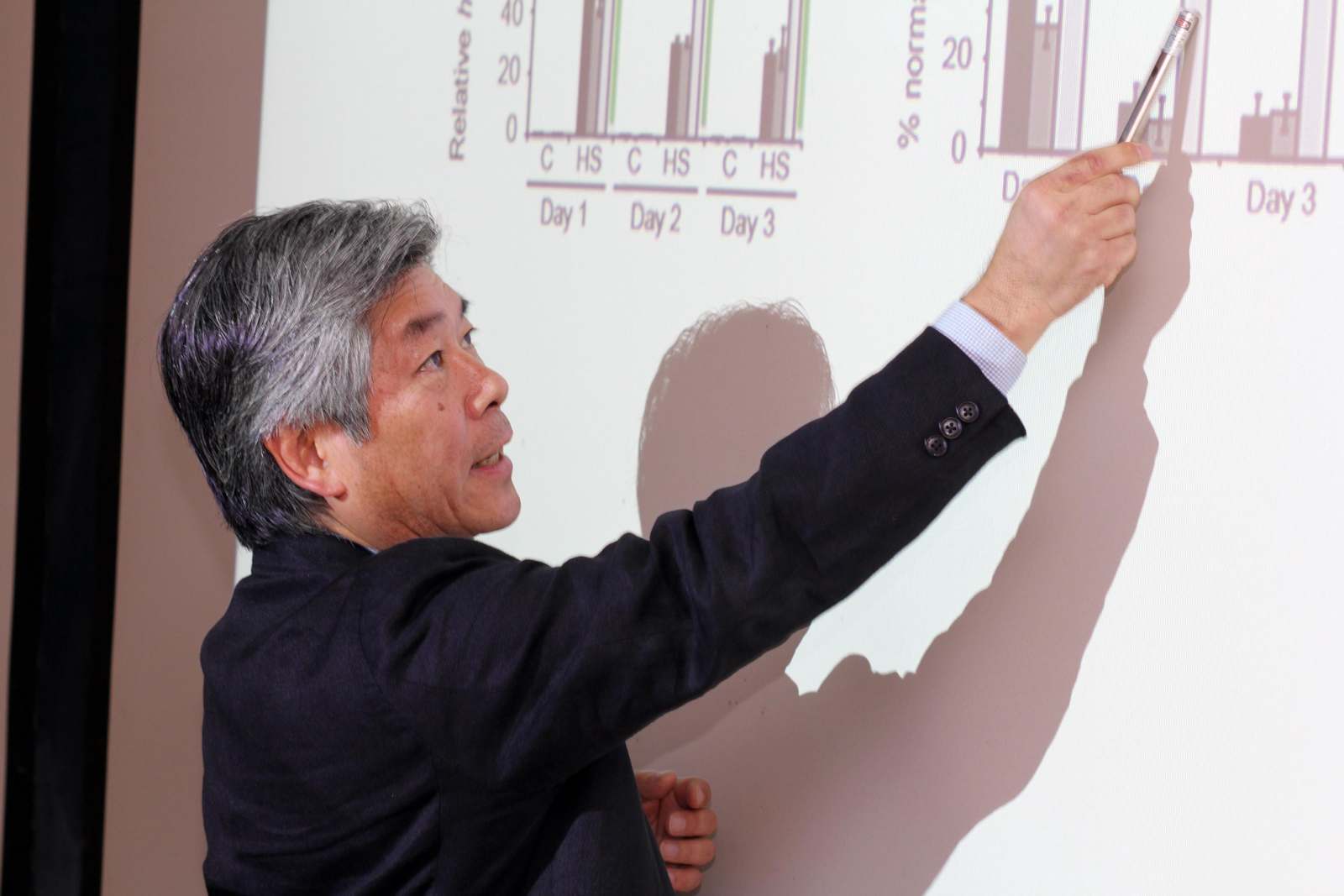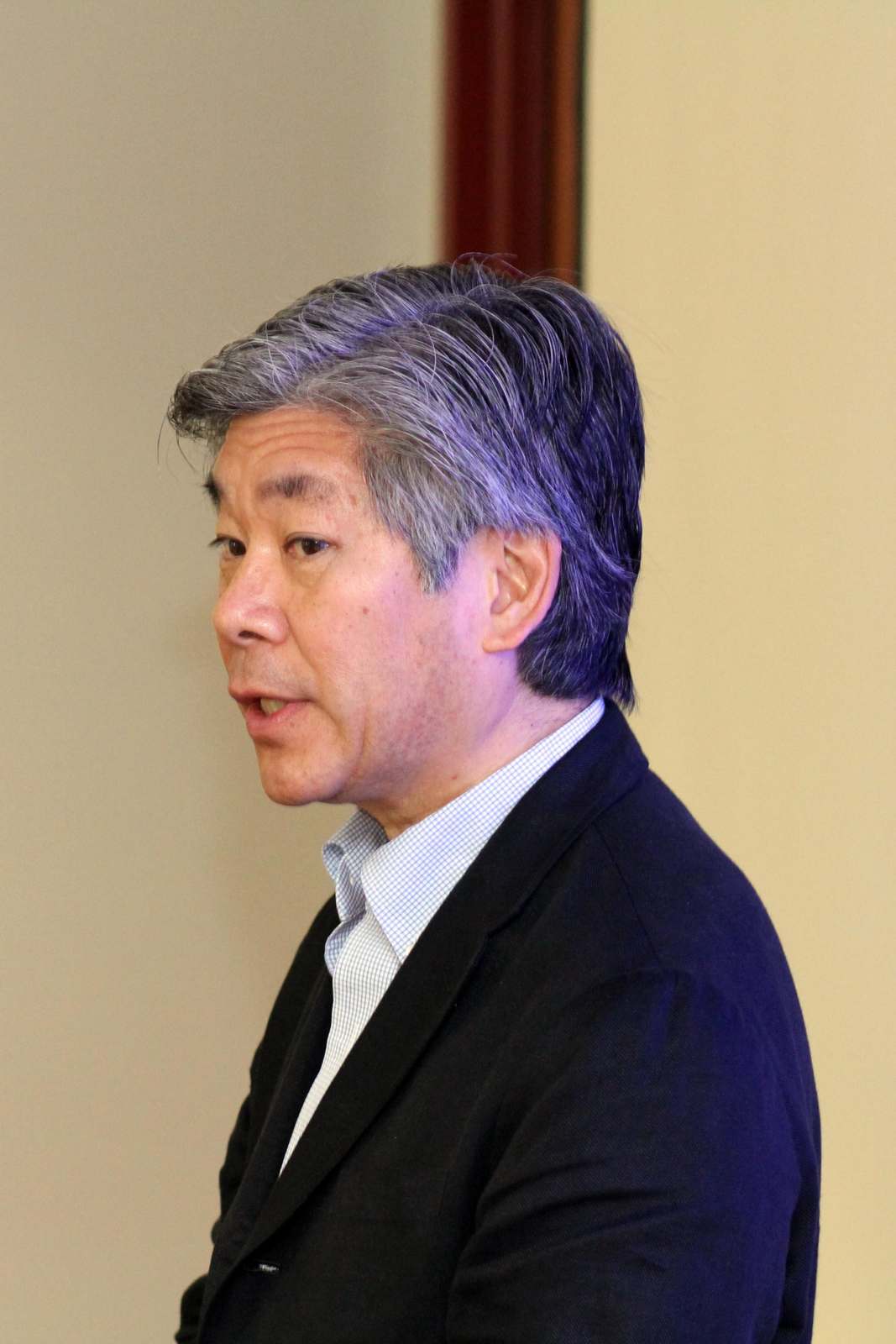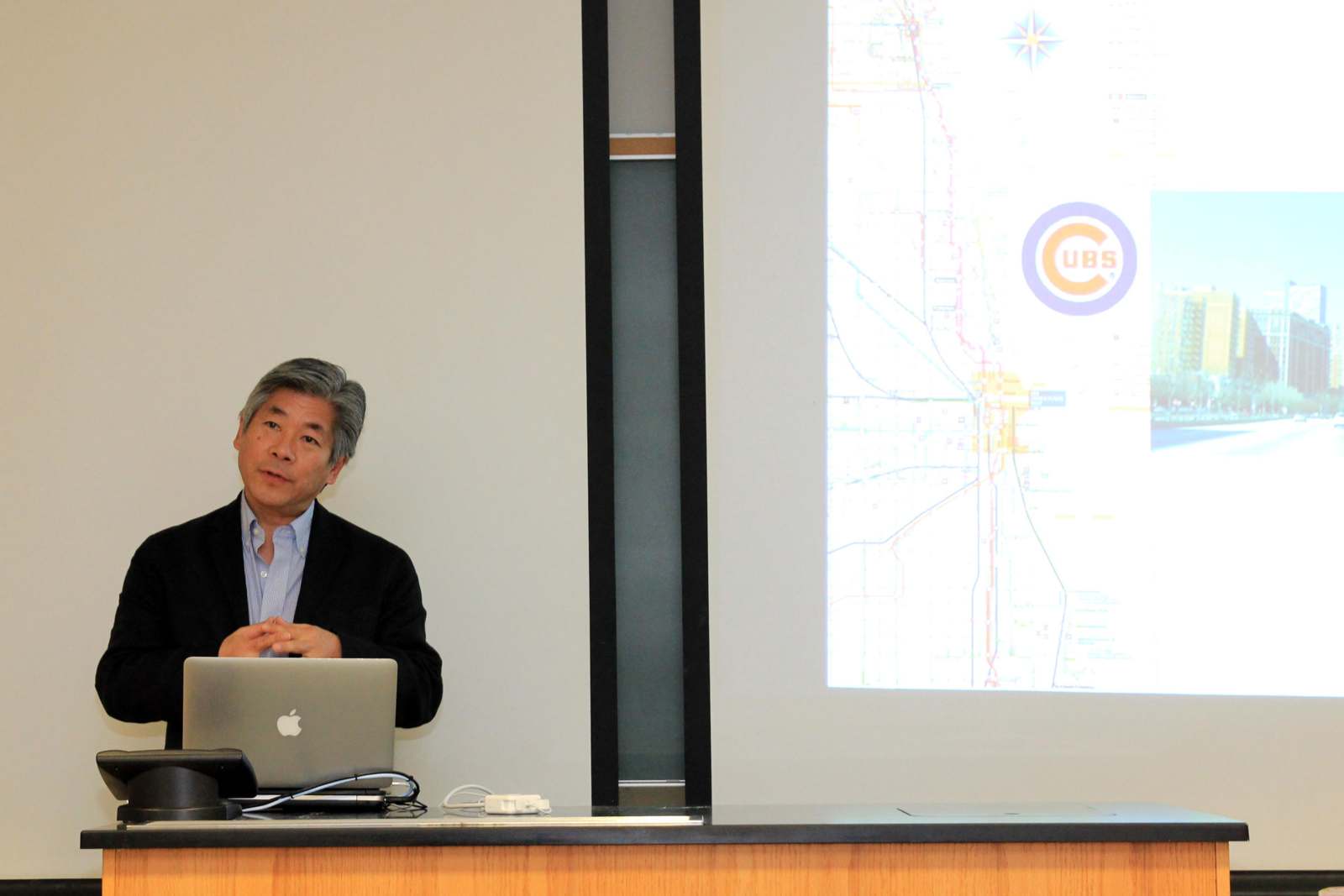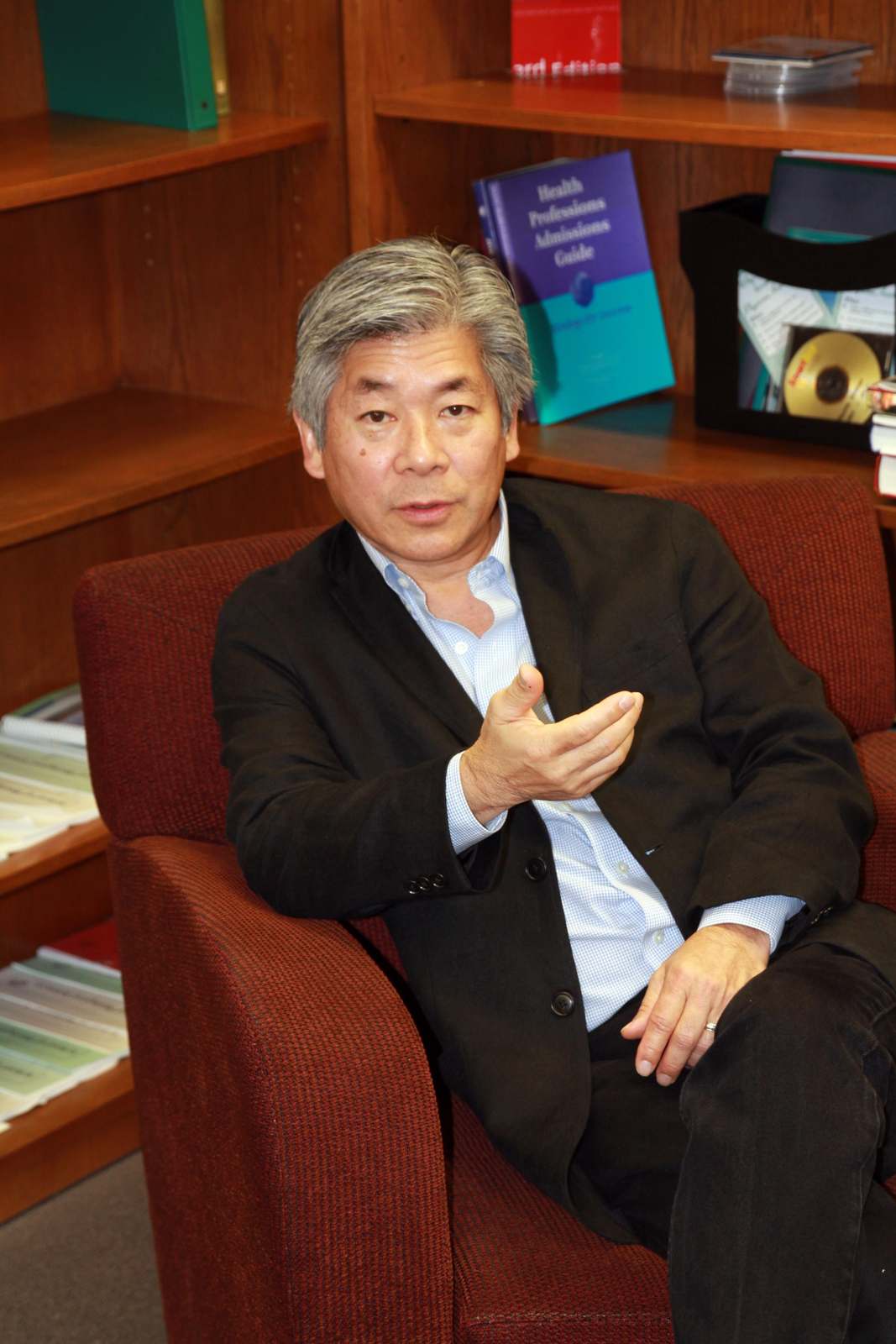Dr. Richard Morimoto, Cole Lecturer; Oct. 9, 2015
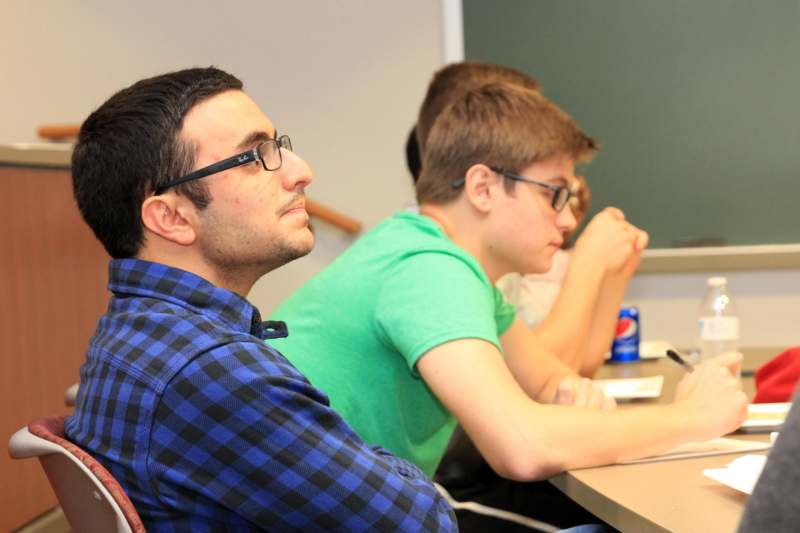
'Being here during the academic session is very different because you get to see the students and see them in action,' Morimoto said of his Thursday evening talk. 'It was a privilege to imagine that students would come out after dinner at night for a talk. Usually, you have to drag students kicking and screaming after hours.'
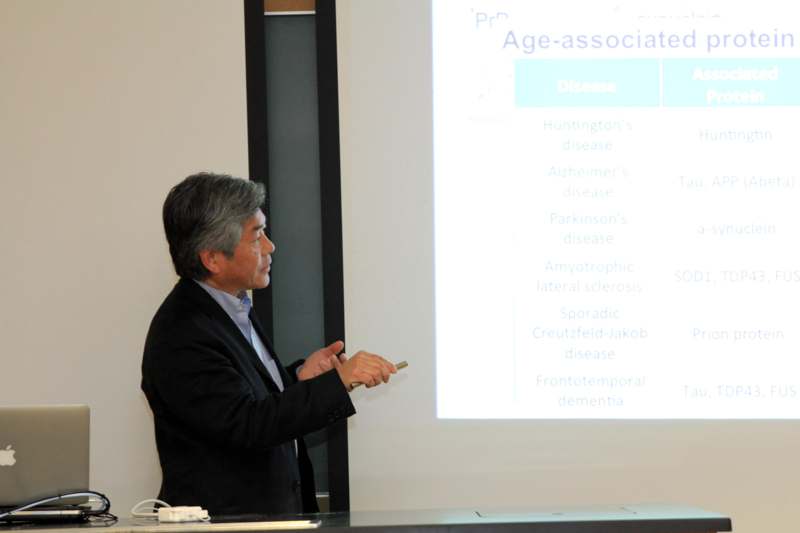
'The room was filled last night and they asked great questions,' he said. 'That is an even better measure that they are curious. They boldly asked questions. It was constant. We had to stop the session because it was getting so late. The students kept asking and that’s a genuine pleasure. Their questions were as good as I would have gotten at a major scientific congress. That’s wonderful.'
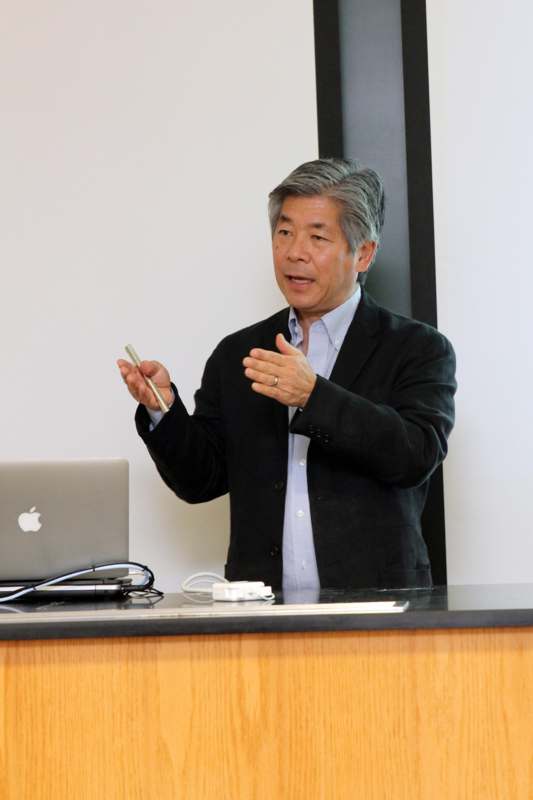
'What is the relationship between chronological aging and biological aging,' he asked. 'We can all look at people of a particular age and notice that some of them look great and some of them don’t. Why? Are those who age at a faster rate biologically more at risk? As a scientist, I’m trying to understand the molecules. Which ones are critical in aging and which ones change?'
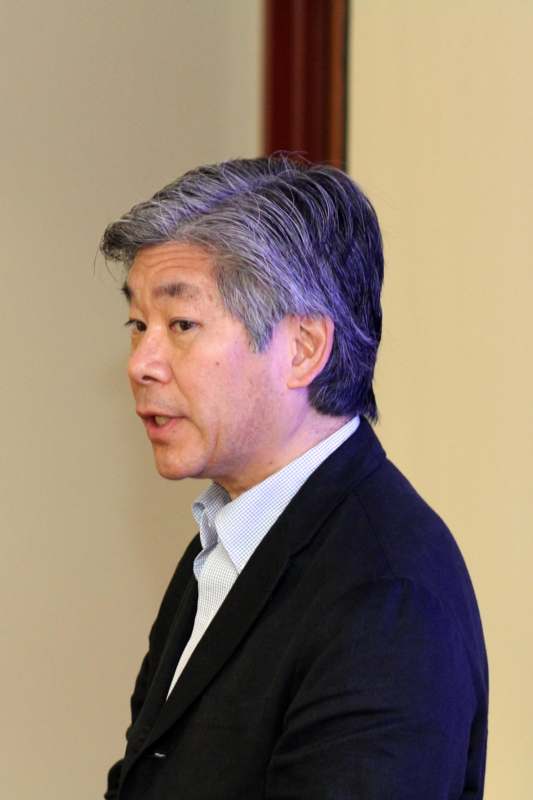
'The nice thing about being a scientist – at Wabash or Northwestern or anywhere else – is that you are surrounded by really talented kids,' he explained. 'That’s why I’m at a university where I work with undergraduates. I love having students. I’m no different than the faculty here. Undergraduates bring a genuine, honest curiosity, untouched. You have to find them, and give them every chance to nurture it.'
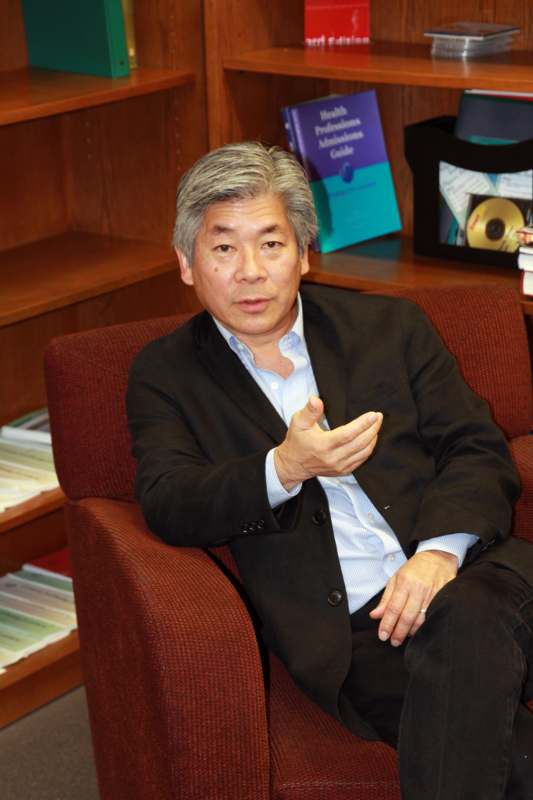
'(Travel) is one of the great joys of what we do – you hear science, you meet interesting people, you ask questions, you learn, you talk wonderful things. It’s a privileged life to be a scholar, to be a scientist and to travel to interesting places. I was born in Chicago, yet every time I drive through the corn fields, it’s like a new experience. To watch the combines on either side of the road mowing down the stalks was very enjoyable,' concluded Morimoto.

